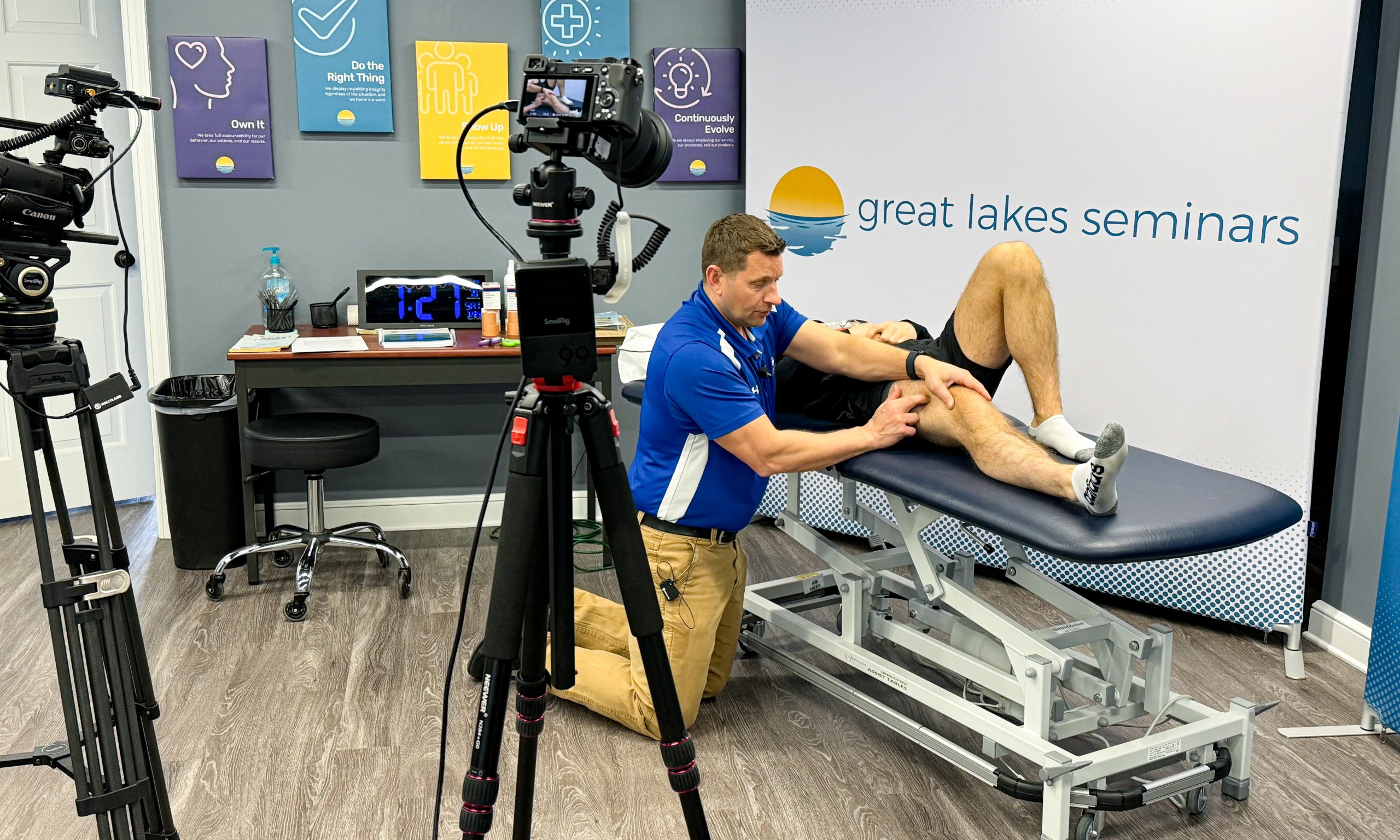How to Stay Current with Research in Physical Therapy

In the rapidly evolving field of physical therapy, staying up to date with the latest research is crucial for providing optimal patient care. This article explores various strategies for physical therapists to remain current with cutting-edge research and developments in their field. From leveraging professional memberships to utilizing open-access journals and creating personalized research filters, these methods offer practical ways for therapists to enhance their knowledge and skills. By implementing these approaches, physical therapists can ensure they are well-informed and equipped to deliver the best possible care to their patients.
Strategies to Stay Current with Research in PT:
Become an APTA member with section membership of your area of interest
As an APTA member, you have the opportunity to enhance your professional development by joining specific sections that align with your areas of interest. These sections offer specialized resources and networking opportunities tailored to various physical therapy disciplines.
One of the key benefits of section membership is access to scientific journals. For instance, the Orthopaedic section provides members with The Journal of Orthopaedic & Sports Physical Therapy (JOSPT), a highly respected publication in the field. This journal offers innovative research, clinical insights, and evidence-based practices specific to orthopedics.
Joining a relevant section provides access to specialized knowledge through webinars, conferences, and networking events. This approach enhances expertise and career prospects in your chosen physical therapy area.
Open-access journals
Open-access journals have revolutionized the way researchers and the public access scientific information. These journals make their articles freely available online, allowing anyone to read, download, and share the latest research findings. This model contrasts with traditional subscription-based journals, which often require expensive institutional subscriptions or individual article purchases.
To find open-access articles, researchers can utilize various online platforms. A few examples include:
PubMed Central – an archive of biomedical and life sciences journal literature, is an excellent resource to find open-access content.
Google Scholar – provides a powerful search engine for academic literature, including many open-access articles across various disciplines.
Open-access platforms enhance accessibility to scientific knowledge and research dissemination. This can accelerate scientific progress, boost collaboration, and improve decision-making in healthcare and policy. However, researchers must still critically evaluate the quality and credibility of all sources, regardless of accessibility.
Library access from your organization
Many organizations recognize the importance of providing their colleagues with access to research resources. By offering subscriptions to academic journals and databases, these institutions enable their staff, students, or researchers to stay up-to-date with the latest developments in their fields.
To take advantage of this benefit, you’ll need to create an account through your organization’s library system. Once set up, you’ll have the ability to search for and download full-text articles that are normally behind a paywall.
Large organizations, particularly hospital systems, often employ one or more librarians. These professionals are a valuable resource that you should not overlook. Librarians possess extensive knowledge of the available resources and can guide you through the intricacies of database searches, helping you find precisely what you need!
Create filters to be sent to your email inbox
Creating filters in PubMed is a helpful tool for researchers and healthcare professionals to stay up-to-date with the latest developments in their field. Once you’ve created an account, you can customize filters to streamline your research process.
For example, if you’re passionate about pain science, you can easily set up a filter to receive weekly updates on all new articles that mention “pain neuroscience education” in their titles. This ensures you never miss out on crucial developments in your area of interest.
Filters aren’t limited to just topics; you can also create them for specific authors or journals. This feature is particularly useful for following the work of leading experts in your field or staying current with publications from prominent journals.
These filters help you stay updated on relevant research without manual searching. This saves time, allowing you to focus on analysis and application. For effective use, be specific in your filter choices to receive manageable, relevant updates that easily integrate into your work or studies.
Subscribe to research newsletters
Staying up to date with the latest developments in physical therapy is crucial for professionals in the field. One effective way to achieve this is by subscribing to research newsletters. These resources typically come out weekly or monthly, providing a consistent stream of information directly to your inbox.
To find newsletters that align with your interests and specialization, input the phrase “physical therapy research newsletter” along with your specific area of focus into a search engine. For instance, if you’re interested in orthopedics, pediatrics, or neurology, include these terms in your search query.
Many reputable organizations and institutions offer specialized newsletters catering to different branches of physical therapy. By subscribing to these, you’ll gain access to:
Recent research findings
New treatment techniques
Upcoming conferences and events
Expert opinions and analyses
Case studies and practical applications
Remember to choose newsletters from credible sources to ensure the information you receive is accurate and reliable. Subscribing to multiple newsletters covering different aspects of physical therapy can provide a well-rounded perspective on the field, helping you enhance your knowledge and improve your practice.
Research podcasts
We’re so lucky to have access to thousands of podcast episodes on all sorts of physical therapy topics. This wealth of information provides an excellent opportunity for continuous learning and professional development. By leveraging the power of podcasts, physical therapists can stay current with the latest research, techniques, and industry trends.
To make the most of this resource, start by searching for topics that interest you the most. Whether you’re curious about new treatment modalities, specific conditions, or advancements in rehabilitation technology, there’s likely a podcast episode covering it. Many podcasts feature interviews with leading researchers, clinicians, and thought leaders in the field of physical therapy. This gives listeners direct access to expert insights and novel information that might not be readily available elsewhere.
By incorporating podcast listening into your routine, whether during your commute, workout, or downtime, you can efficiently consume valuable information and stay at the forefront of physical therapy practice.
Start or join a literature review group
Starting or joining a literature review group can be a great way to stay consistent with reading research articles. Meeting regularly with like-minded individuals can significantly boost motivation and productivity in your research journey. A monthly gathering provides an ideal balance, allowing participants to share new ideas and implement them between sessions.
These groups offer numerous benefits:
- Accountability: Scheduled meetings create a sense of responsibility, encouraging members to make progress on their literature reviews.
- Knowledge sharing: Participants can exchange insights on research methodologies, databases, and organizational tools.
- Diverse perspectives: Exposure to different viewpoints can broaden your understanding of the subject matter and reveal new angles for your research.
- Networking opportunities: Regular interactions can lead to collaborations and professional connections within your field.
- Motivation boost: Engaging with enthusiastic peers can reignite your passion for research during challenging periods.
Closing Thoughts
In conclusion, staying current with research in physical therapy is essential for providing optimal patient care and advancing one’s professional development. This article has outlined several effective strategies for physical therapists to remain up-to-date with the latest advancements in their field. From leveraging APTA memberships and open-access journals to utilizing organizational library access and creating personalized research filters, these methods offer practical ways to enhance knowledge and skills. Additionally, subscribing to research newsletters, engaging with research podcasts, and participating in literature review groups provide diverse avenues for continuous learning. By implementing these approaches, physical therapists can ensure they are well-informed, equipped with the latest evidence-based practices, and prepared to deliver the highest quality care to their patients in this rapidly evolving field.
Questions? Check out these FAQs!
Staying up-to-date with the latest research helps physical therapists provide evidence-based care, improve patient outcomes, and stay informed about emerging techniques and best practices.
Open-access journals are free online publications that allow anyone to read, download, and share research articles. Platforms like PubMed Central and Google Scholar provide easy access to these resources.
APTA membership gives access to specialized sections, journals like JOSPT, webinars, conferences, and networking opportunities, all tailored to your area of interest in physical therapy.
Research podcasts allow you to learn from leading clinicians and researchers while commuting or exercising, providing insights into new techniques, trends, and evidence-based practices.
Combine multiple approaches: leverage professional memberships, open-access journals, library resources, email filters, newsletters, podcasts, and peer review groups to maintain a consistent, well-rounded research practice.
Share this article:


